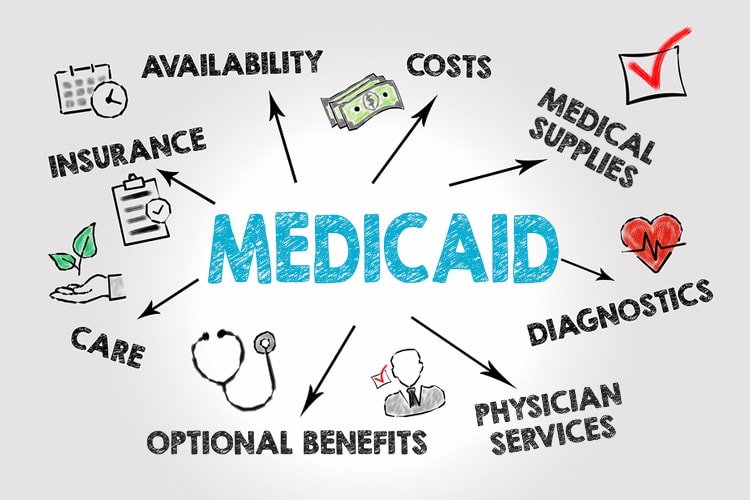The Rural Impact of Medicaid Expansion

Are you curious about the impact of Medicaid expansion in rural areas?
Discover how this policy change has the potential to address the healthcare challenges faced by rural communities.
Explore the benefits it can bring, from increased access to healthcare for low-income individuals to support for healthcare providers in these regions.
By examining the unique needs of rural populations, we can understand how Medicaid expansion is serving the people who need it most in these areas.
Key Takeaways
- Medicaid expansion in rural areas can lead to improved health outcomes through increased access to preventive care and treatment.
- It can also stimulate economic growth by creating jobs in the healthcare sector and attracting businesses to healthier communities.
- Medicaid expansion can alleviate the financial strain on individuals by providing affordable healthcare coverage, reducing the need for costly emergency room visits.
- Healthcare providers in rural areas can benefit from increased patient volume, financial stability, and access to a larger pool of insured patients, allowing them to invest in necessary equipment and attract and retain healthcare professionals.
Current Healthcare Challenges in Rural Areas
In rural areas, you face unique healthcare challenges due to limited access to medical facilities and specialists. Healthcare disparities are prevalent, as rural communities often lack the resources and infrastructure needed to provide comprehensive care.
One of the major issues faced by rural areas is the increasing number of rural hospital closures. These closures have a significant impact on the community, as they result in decreased access to emergency services and specialized care.
Without nearby hospitals, individuals in rural areas often have to travel long distances to receive medical attention, causing delays in treatment and potentially worsening health outcomes. Additionally, the closure of rural hospitals creates a gap in employment opportunities and economic stability for these communities.
Addressing these challenges is crucial to ensure equitable access to healthcare for all individuals, regardless of their location.
Potential Benefits of Medicaid Expansion in Rural Communities
Expanding Medicaid can provide significant benefits for rural communities. Here are three potential benefits of Medicaid expansion in rural areas:
- Improved Outcomes: By expanding Medicaid, more rural residents will have access to preventive care, screenings, and treatment for chronic conditions. This can lead to better health outcomes, reducing the burden of disease and improving overall well-being in these communities.
- Economic Growth: Medicaid expansion can stimulate economic growth in rural areas. It can create jobs in the healthcare sector, attracting healthcare providers to underserved regions. Increased access to healthcare services can also attract businesses and industries, as a healthier workforce can lead to increased productivity and reduced healthcare costs.
- Reduced Financial Strain: Medicaid expansion can alleviate the financial strain on rural individuals and families. By providing affordable healthcare coverage, it can reduce the need for costly emergency room visits and provide a safety net for those who can’t afford private insurance.
Impact on Healthcare Providers in Rural Areas
By expanding Medicaid, rural healthcare providers can experience increased patient volume and financial stability. This is particularly important in rural areas that often face healthcare workforce shortages and struggle with financial sustainability. Medicaid expansion can help address these challenges by providing a larger pool of insured patients, leading to increased patient volume for healthcare providers. This increased patient volume can help alleviate the strain on rural healthcare providers, ensuring that they can continue to serve the needs of their communities. Additionally, Medicaid expansion can provide financial stability for rural healthcare providers by increasing their reimbursement rates and reducing uncompensated care costs. This allows providers to invest in necessary equipment, attract and retain healthcare professionals, and ultimately deliver better care to their patients.
| Pros of Medicaid Expansion for Rural Healthcare Providers | Cons of Medicaid Expansion for Rural Healthcare Providers |
|---|---|
| Increased patient volume | Potential strain on resources |
| Financial stability | Changes in reimbursement rates |
| Access to a larger pool of insured patients | Administrative burden |
| Reduced uncompensated care costs | Potential delays in reimbursement |
| Ability to invest in necessary equipment | Increased demand for services |
Access to Healthcare for Low-Income Individuals in Rural Areas
Access to healthcare for low-income individuals in rural areas is crucial for ensuring equitable healthcare access and addressing the disparities faced by these vulnerable populations. In order to paint a picture for you, here are three important points to consider:
- Healthcare Disparities:
Low-income individuals in rural areas often face significant healthcare disparities compared to their urban counterparts. This can be due to limited healthcare facilities, shortage of healthcare providers, and lack of transportation options.
- Rural Health Clinics:
Rural health clinics play a vital role in bridging the gap in healthcare access for low-income individuals in rural areas. These clinics provide primary care services, preventive screenings, and affordable healthcare options to those who may otherwise have limited access to medical care.
- Challenges in Healthcare Delivery:
Providing healthcare to low-income individuals in rural areas can be challenging due to factors such as geographical isolation, limited resources, and workforce shortages. Efforts should be made to improve telehealth services, expand transportation options, and incentivize healthcare providers to practice in rural areas.
Addressing the Unique Needs of Rural Populations Through Medicaid Expansion
To effectively address the unique needs of rural populations, Medicaid expansion can provide essential healthcare coverage and support. Rural healthcare disparities are a pressing issue that needs attention.
Many rural areas face challenges such as limited access to healthcare facilities, shortages of healthcare professionals, and high rates of chronic diseases. Medicaid expansion can help bridge the gap by providing coverage to low-income individuals in these areas. It can improve access to primary care services, preventive screenings, and treatment options.
Additionally, Medicaid reimbursement rates can be adjusted to attract healthcare providers to rural areas, ensuring that individuals have access to quality care. By expanding Medicaid, we can make a significant impact on the health and well-being of rural populations, addressing the disparities they face and ensuring that everyone has access to the care they need.
Frequently Asked Questions
How Does the Current Healthcare Workforce Shortage in Rural Areas Impact Access to Healthcare for Low-Income Individuals?
The healthcare workforce shortage in rural areas affects access to healthcare for low-income individuals. Without enough providers, it becomes difficult for these individuals to receive the care they need in their communities.
What Are Some Potential Challenges That Healthcare Providers in Rural Areas May Face if Medicaid Is Expanded?
If Medicaid is expanded, you may face challenges in providing accessible healthcare in rural areas. These challenges could include increased demand, limited resources, and difficulties in recruiting and retaining healthcare professionals.
How Does Medicaid Expansion in Rural Communities Affect the Availability of Specialty Healthcare Services?
Medicaid expansion in rural communities improves access to specialists, reducing healthcare disparities. With more funding, providers can offer specialized care locally, eliminating the need for patients to travel long distances for treatment.
What Strategies Can Be Implemented to Ensure the Unique Healthcare Needs of Rural Populations Are Adequately Addressed Through Medicaid Expansion?
To ensure the unique healthcare needs of rural populations are met through Medicaid expansion, implement strategies like telemedicine, mobile clinics, and increased provider recruitment. These approaches can help address access and affordability challenges.
How Does Medicaid Expansion Impact the Financial Sustainability of Rural Healthcare Facilities?
Medicaid expansion can have financial implications for rural healthcare facilities. It can increase access to healthcare for rural populations, but may also strain the resources and financial sustainability of these facilities.









